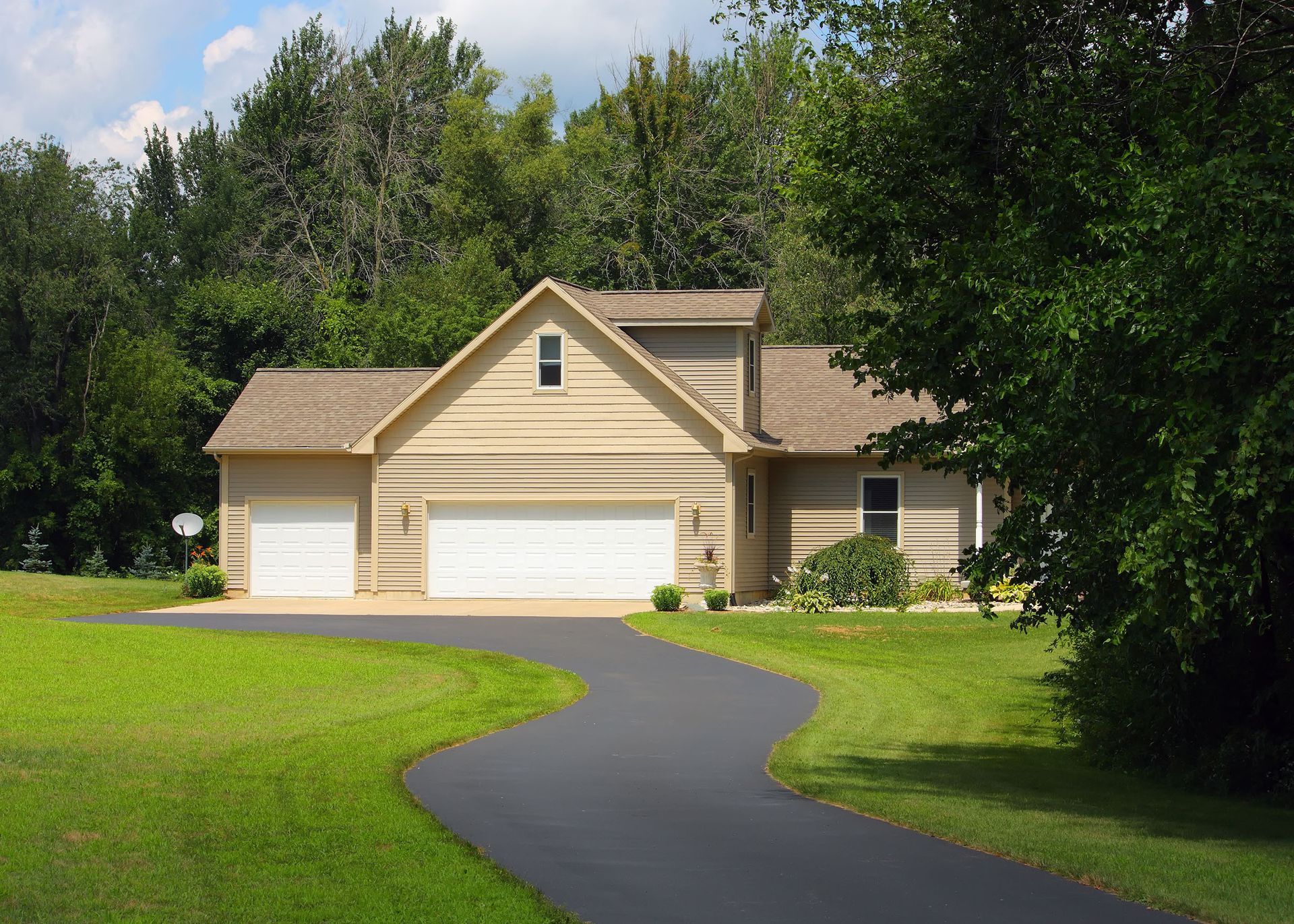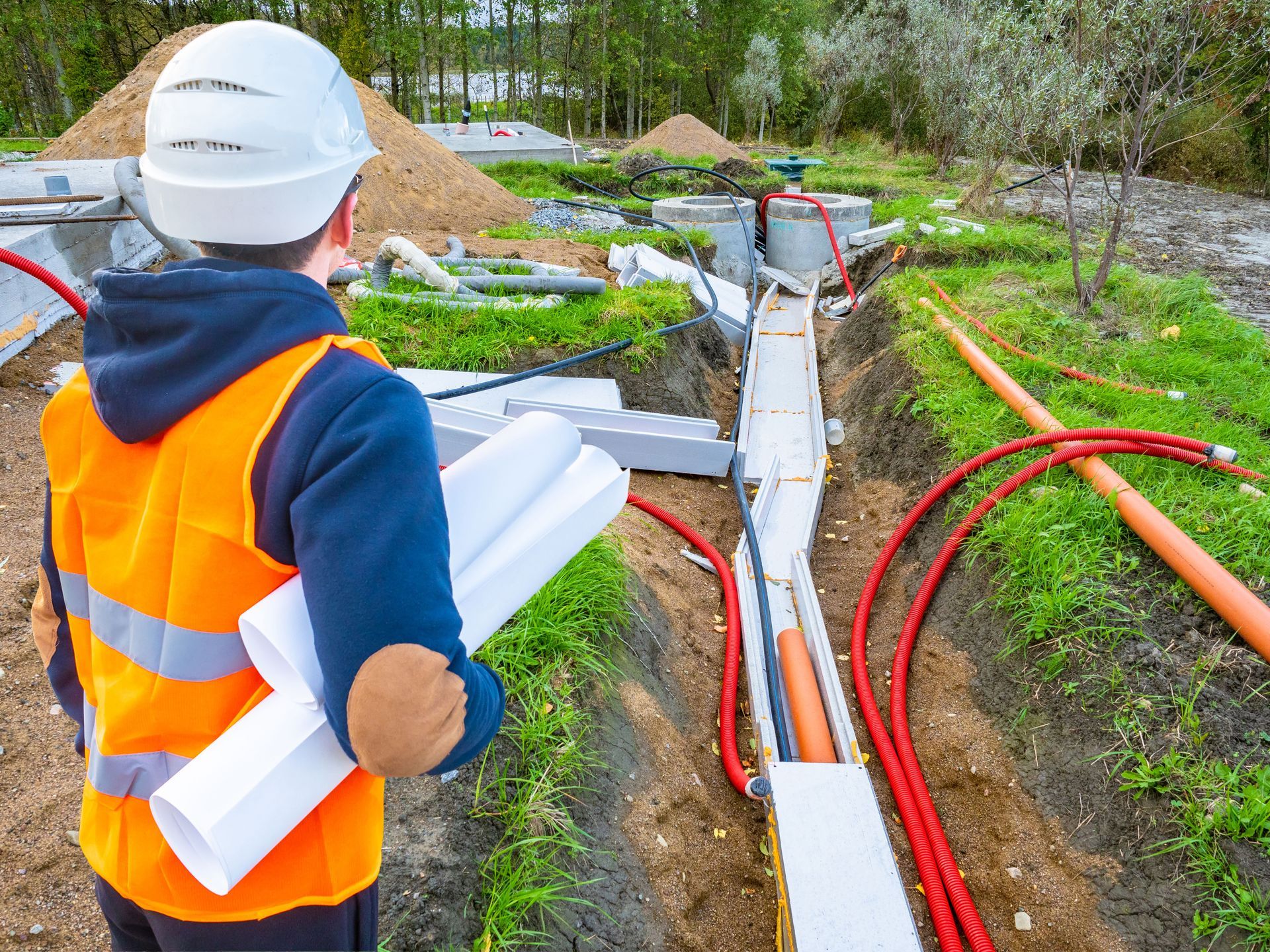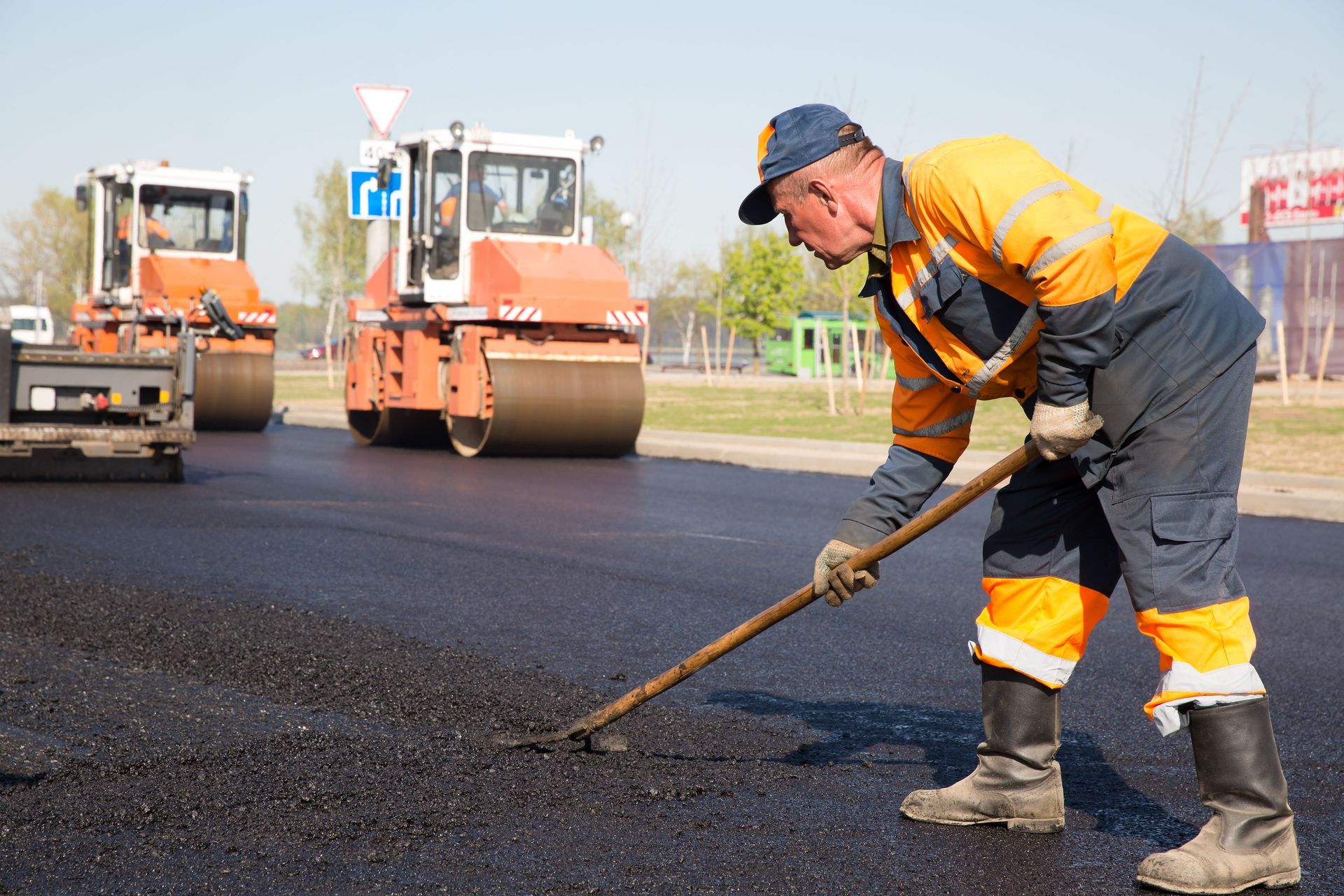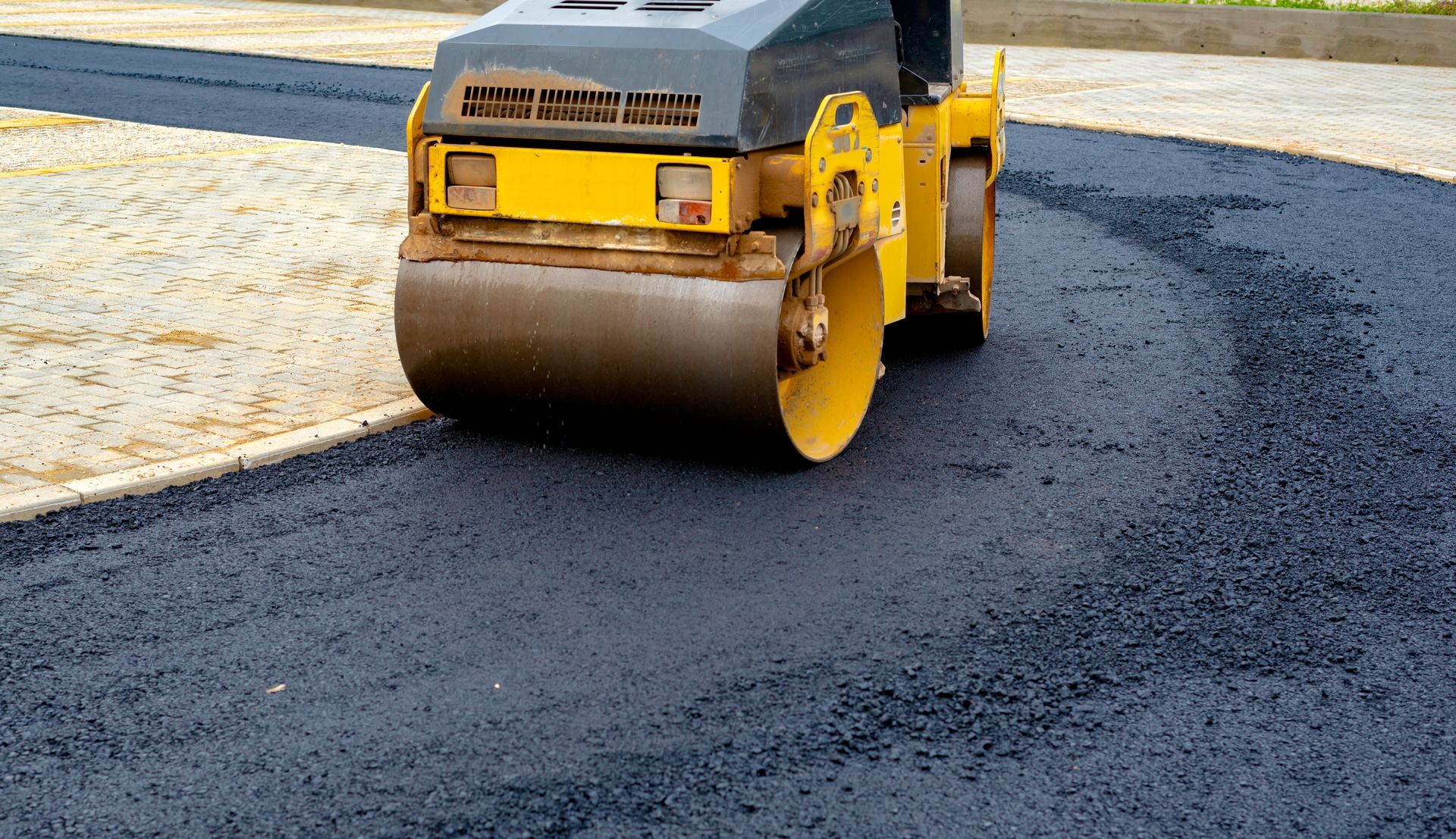September 30, 2025
Choosing the right material for a driveway is an important decision that affects both functionality and property appearance. Homeowners often weigh factors such as cost, durability, maintenance, and climate suitability before deciding on a surface that will last for years. Asphalt and concrete are two of the most common materials used by paving companies, each offering distinct benefits depending on your needs. Asphalt is valued for its affordability, quick installation, and flexibility, making it a practical choice for many residential projects. Concrete provides long-term durability and structural strength, often used for functional elements such as curbs, sidewalks, and foundations.
Understanding the differences between these materials helps homeowners make informed decisions that match their budget, long-term goals, and local environmental conditions. When planning for a driveway project, it is important to explore key considerations including cost, lifespan, installation, maintenance, and environmental impact to help you determine which material is a good fit for your property while ensuring reliable performance over time. Considering factors such as expected traffic, vehicle weight, and neighborhood standards can further guide your choice. Consulting with professional paving companies can provide practical insight, accurate estimates, and recommendations tailored to your property.
Understanding Cost Factors
When comparing concrete and asphalt, cost often becomes the deciding factor for homeowners. Asphalt is usually less expensive to install initially, making it attractive for those working within a tighter budget. Concrete requires more labor and preparation, which can increase the upfront cost. However, it is worth evaluating more than the initial investment, since ongoing maintenance and expected lifespan are equally important considerations. Factoring in these details ensures homeowners know what they are committing to financially.
Looking at long-term value, asphalt is still one of the most relied-on materials by paving companies because it offers affordability without sacrificing durability. Deciding which option is right depends on how long you plan to live in your home and how much you are willing to budget for future upkeep. It is also helpful to consider the scale and purpose of your project. Smaller residential driveways may benefit more from asphalt due to quicker installation and lower costs, while larger or high-traffic areas may justify additional investment in concrete or reinforced surfaces. Evaluating your property layout, expected vehicle load, and neighborhood conditions can provide further insight into the most practical choice. Consulting with experienced paving companies can help clarify these considerations and provide accurate estimates for planning and budgeting.
Evaluating Lifespan and Durability
The durability of a driveway plays a major role in overall investment. Asphalt typically performs well for 20 to 30 years according to Bob Vila. For many households, asphalt provides a reliable surface that balances cost with performance, even if it requires eventual resurfacing. For those staying in one place long term, concrete may be worth the extended service life, but both materials deliver dependable results when properly maintained.
Weather conditions are also key to how well each material holds up. Asphalt is more flexible, allowing it to expand and contract with changing temperatures. This makes it less likely to crack during cold winters, but in very hot climates, asphalt may soften and wear faster. Matching your driveway choice with regional conditions is an important part of making the right decision.
Load-bearing capacity also comes into play. Asphalt can handle routine vehicle traffic effectively, but concrete generally offers higher load support, which may matter for properties with heavier trucks or equipment. That said, most residential driveways perform well with asphalt, especially when installed and maintained by experienced paving companies that understand proper grading and compaction.
Reviewing Installation Needs
Time and labor are two practical considerations for homeowners planning a driveway project. Asphalt is typically quicker to install, and many homeowners appreciate that it can often be used within a couple of days. Concrete requires longer curing time, which means the driveway cannot be used right away. Scheduling around these timeframes is an important part of preparing for installation and managing expectations for when the surface will be ready for use.
The type of equipment and expertise required can also influence your decision. Asphalt projects rely on specific paving machinery for spreading and compacting, while concrete work demands thorough site preparation and precise finishing. For most homeowners, professional installation is the most practical choice, since paving companies already have the tools and crews to deliver consistent results. Choosing the DIY route can add costs and risks if the job is not executed correctly.
Measuring Appearance and Value
The way a driveway looks contributes directly to curb appeal and overall property value. Concrete allows for a clean, smooth finish, while asphalt delivers a neat, uniform black surface that many homeowners find appealing. Beyond aesthetics, the choice of material can also impact how a property is perceived by potential buyers, neighborhood cohesion, and the overall impression of care and maintenance. A well-installed driveway from professional paving companies enhances both appearance and functionality, creating a polished look that complements the home.
Both materials can influence resale value in different ways. Concrete may appeal to buyers who want a longer-lasting driveway, while asphalt often attracts those who want affordability and practical reliability. Real estate markets vary, so understanding what buyers in your area value most can help guide your decision. Either way, a well-installed driveway from reliable paving companies will contribute positively to property value.
Homeowners should also think about the way their driveway design connects with the rest of the property. A uniform black asphalt surface can provide a strong contrast to green lawns and landscaping, while concrete offers a lighter, brighter look. The choice often comes down to preference and how the driveway complements the home’s exterior features.
Matching Climate Conditions
Climate suitability is one of the most important factors when deciding between asphalt and concrete. Asphalt adapts better to cold weather, where its flexibility allows it to withstand freeze-thaw cycles without cracking as easily. Homeowners should also consider how sun exposure, rainfall, and humidity might affect the driveway over time, as these factors can influence material choice and maintenance needs.
Finally, seismic activity and seasonal extremes can influence long-term performance. Concrete, due to its rigidity, may crack under shifting ground, while asphalt can flex and adapt more easily. Evaluating these conditions alongside traffic loads and usage patterns, and consulting with experienced paving companies, helps ensure a driveway that remains functional, durable, and visually appealing for years to come.
Asphalt and concrete both offer advantages depending on your budget, climate, and long-term goals. Asphalt stands out for its affordability, quicker installation, and recycling benefits, while concrete offers a longer lifespan and higher load capacity in certain situations. For many homeowners, asphalt provides the most balanced combination of cost, performance, and appearance, which is why it remains a primary choice offered by paving companies across the country.
When planning a new driveway, consider not only the material itself but also who is installing it. Professional crews ensure grading, drainage, and installation are handled properly, which makes a significant difference in how long the surface lasts. Homeowners who work with experienced contractors can rely on consistent results and long-term value for their investment. Ready to plan your next project? Contact Gulf Pride Paving and Civil Contractors to learn more about driveway solutions that fit your property’s needs.







